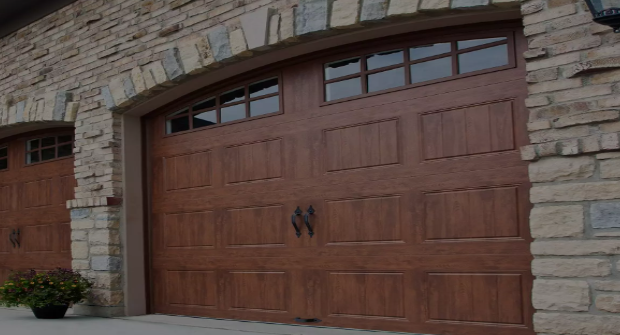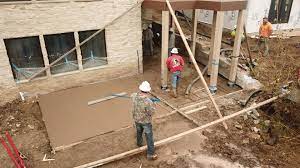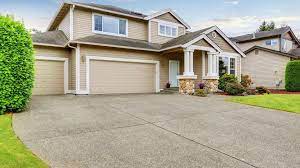Epoxy has become a popular material for altering a variety of surfaces, ranging from garage floors to countertops and industrial spaces. But have you ever pondered what it is about epoxy that makes it such a fantastic material? The secret is in its distinct chemical composition and the science behind its use. In this blog post, we’ll delve into the intriguing world of epoxy, investigating the science that makes it a long-lasting and appealing surface solution while briefly highlighting the advantages of professional garage coating services.
Understanding the Fundamentals: What Is Epoxy?
Epoxy is a polymer, particularly a thermosetting polymer. In contrast to thermoplastics, which may be melted and reshaped again, thermosetting polymers cure through a chemical process, resulting in a permanent and highly durable structure. Epoxy resins are made up of two main components:
1. Resin: A resin is a low molecular weight pre-polymerized liquid. It acts as the foundation for the epoxy composition.
2. Hardener: A hardener, also known as a curing agent, is a catalyst that starts the chemical reaction with the resin. It induces the resin molecules to cross-link, resulting in the formation of a solid, three-dimensional network.
The resin-to-hardener ratio, as well as the precise chemical formulation, define the attributes of the epoxy combination, such as curing time, hardness, and flexibility.
The Epoxy Curing Chemistry
The curing process of epoxy is where the magic happens. When the resin and hardener are combined, a chemical reaction known as polymerization occurs. Here’s a quick rundown of the major phases in epoxy curing:
1. Mixing: Thoroughly combine the resin and hardener. This mixing ensures that the hardener is distributed uniformly throughout the resin.
2. Activation: The hardener starts the curing process by reacting with the resin’s particular functional groups. Typically, this reaction involves the breaking and formation of chemical bonds.
3. Cross-Linking: Cross-linking occurs when the hardener combines with the resin, resulting in the formation of cross-links between the individual resin molecules. These cross-links combine to build a strong, interconnected network.
4. Solidification: As more cross-links are produced, the epoxy mixture eventually solidifies. As a result, the material is strong, long-lasting, and chemically resistant.
5. Curing Time: The time it takes for epoxy to cure is affected by a number of elements, including temperature, humidity, and the precise formulation of the epoxy. Some epoxy mixes solidify fast, while others may take several hours or even days.
Epoxy’s Key Characteristics
Now that we’ve covered the chemistry of epoxy curing, let’s look at some of the fundamental properties that make epoxy an excellent material for a variety of applications:
1. Durable: Epoxy produces a highly durable and tough surface. It can tolerate severe traffic, impacts, and abrasions after curing without displaying evidence of wear.
2. Chemical Resistance: Epoxy is chemically resistant to a wide range of substances, including acids, solvents, and oils. Because of this resistance, it is an excellent choice for surfaces that may come into touch with a variety of substances.
3. Adhesive Properties: Epoxy’s adhesive properties are superb. It may form a strong and long-lasting bond with a number of materials, including concrete, metal, wood, and plastics.
4. Versatile: Epoxy coatings are versatile because they can be tailored to produce specific qualities such as flexibility, hardness, or chemical resistance. Because of its versatility, epoxy is useful for a wide range of applications.
5. Low Porosity: Epoxy coatings have a low porosity, which means they absorb less moisture. This is especially crucial for surfaces that must be water resistant.
6. Attractive Appearance: Epoxy coatings can be created in a variety of colors and finishes, such as matte, satin, and high-gloss. This enables customisation as well as the construction of visually appealing surfaces.
Epoxy Coating Applications
Because of its outstanding characteristics, epoxy coatings have made their way into a wide range of applications in a variety of industries. Epoxy coatings are commonly used for the following purposes:
1. Garage Floors: Epoxy-coated garage flooring are very popular because of their durability, chemical resistance, and aesthetic appeal. They shield the underlying concrete from harm while also improving the overall aesthetic of the area.
2. Countertops: Epoxy-coated countertops are a popular choice for kitchens and bathrooms. They provide a smooth, easy-to-clean surface that is both appealing and long-lasting.
3. Industrial Flooring: Epoxy is commonly utilized in industrial environments where flooring must survive heavy machinery, chemical exposure, and high traffic.
4. Aerospace: Aerospace uses epoxy because of its lightweight yet robust qualities, as well as its resistance to aviation fuels and hydraulic fluids.
5. Construction: Epoxy is used in the construction industry for bonding and sealing applications. It’s often used in concrete restoration and as a structural component glue.
Services for Professional Garage Coating
While epoxy coatings can be done as a do-it-yourself effort, non-slip garage floor coating company Greenville services are worth considering for the following reasons:
Professionals have the knowledge and skills to guarantee that the epoxy mixture is properly made and applied, enhancing durability and performance.
Surface Preparation: Proper surface preparation is critical for a successful epoxy application. Professionals can evaluate and repair any existing problems, like as cracks or surface defects.
Professionals can assist you in selecting the best type of epoxy coating and finish for your unique demands and aesthetic preferences.
Time Efficiency: Coating your garage floor can take some time. Professional installation can save you time and assure a smooth finish.
Long-Term Investment: Professional garage coating services are a long-term solution for protecting your garage floor. It increases the value of your property and extends the life of your garage floor.
Finally, epoxy coatings are the consequence of the interesting science of polymer chemistry. Their distinct qualities make them an excellent choice for a variety of applications ranging from garage flooring to industrial environments. Understanding the chemistry of epoxy will allow you to appreciate its durability, chemical resistance, and versatility. Epoxy coatings provide a dependable and appealing solution for protecting your garage floor or improving the aesthetics of your space. Consult with a professional garage coating provider to guarantee that your epoxy-coated surface not only meets your high requirements, but also benefits from expert installation and longevity, learn more about IronDrive Garage Floors.

















Leave a Reply